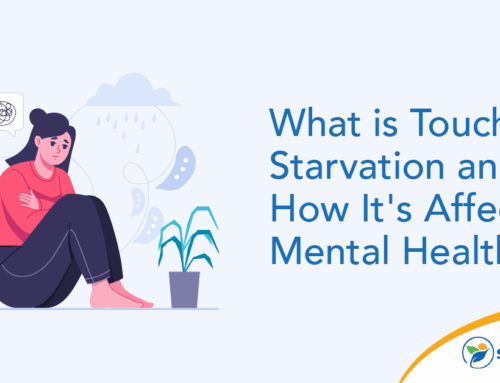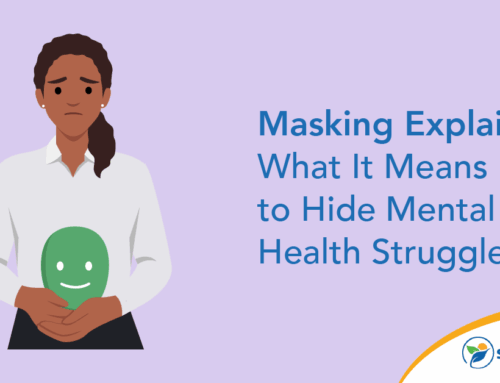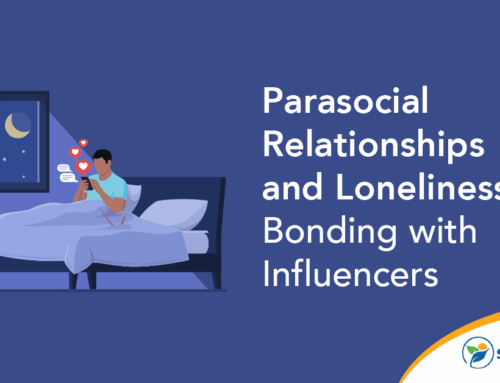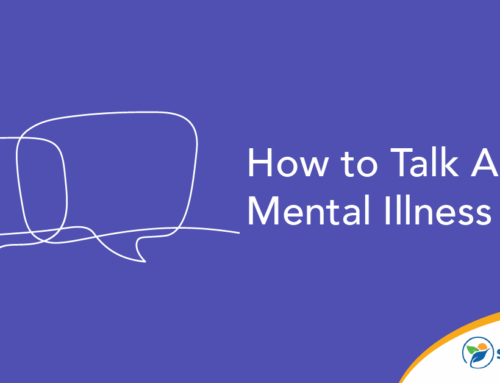You’re probably familiar with the term “anxiety.” Characterized by excessive fear and worry, anxiety can greatly interfere with obligations and relationships. It affects a person’s daily life and impacts their friends and family members. It’s often challenging to communicate about anxiety, and watching someone experience it can be emotionally distressing.
The good news is that anxiety symptoms can be improved through support and treatment. In this article, we’ll take a closer look at this mental illness, how it affects families and the best ways to help anxiety.
Understanding Someone With Anxiety: What Is It?
When a family member has an excessive worry problem, the first question most people ask is, “What can I do to help anxiety?” Before we answer that, it’s important to understand what anxiety is in the first place. As mentioned above, anxiety involves intense, persistent worry in everyday situations. It can be broken down into the following types.
- Generalized anxiety disorder (GAD): As the name suggests, GAD is a general form of anxiety that affects various aspects of daily life, such as work, school and relationships.
- Specific phobias: While some people have generalized anxiety, others experience anxiety in specific situations. For example, a fear of heights can trigger anxiety.
- Social anxiety disorder (SAD): SAD involves intense fear or worry during social situations.
- Obsessive-compulsive disorder (OCD): Those with OCD experience obsessive, intrusive thoughts and impulses. As a result, they may engage in unwanted repetitive behaviors.
- Post-traumatic stress disorder (PTSD): This is a type of anxiety that develops after a traumatic event, such as an assault or accident.
- Panic disorder: People with panic disorder experience panic attacks, or sudden bouts of intense fear and discomfort. A panic attack may involve a fast heart rate, dizziness and chest pain.
In the United States alone, over 30% of adults will experience an anxiety disorder at least once in their lives. Although the condition is treatable, less than 40% of people with anxiety disorders seek assistance. In many households, the subject of mental illness is still considered taboo, which may discourage people from asking for help.
Recognizing Anxiety in a Family Member
Because of the stigma surrounding mental health, it’s common for people to hide their anxiety from loved ones. They may pretend everything is fine — meanwhile, their mental health is declining. To help someone who’s secretive about their anxiety, you must first be able to recognize the signs. While there are different types of anxiety, they share many similarities in terms of symptoms:
- Frequently expressing worries and concerns
- Restless tendencies (such as fidgeting or squirming)
- Sweating and trembling
- Increased fatigue
- Difficulty concentrating and sleeping
- Avoiding stressful situations
Over time, anxiety symptoms can negatively impact important parts of daily life. For example, anxiety can result in low-quality job performance, increased social isolation and poorer health. And it can take a toll on loved ones.
How Does Anxiety Affect Families and Loved Ones?
Anxiety doesn’t just affect the person with the condition — it also affects the people around them. Here are some key ways anxiety negatively impacts family members.
- Increased stress: Nobody wants their loved ones to feel worried, stressed or generally unhappy. Watching a family member experience anxiety can cause someone to become stressed themselves.
- Communication issues: Because many people with anxiety try to minimize their symptoms, it can be difficult to communicate with them.
- Limited interaction: To hide their anxiety symptoms, some people may increasingly isolate themselves from family members. For example, they might remain quiet during family dinners or neglect to attend events.
Ultimately, anxiety can stress families out and make it harder to connect with loved ones.
Best Ways to Help Anxiety
Now that you know what anxiety is and how it affects families, you’re probably wondering: How do you help someone with anxiety? While it isn’t always easy to communicate with an anxious family member, it’s important to offer support. Here are a few of the best ways to help anxiety.
- Supportive environment: Often, people with anxiety are worried about being judged. Make sure your home is a positive, supportive environment where household members feel safe talking about mental health. Avoid making negative comments about mental health or reinforcing the stigma surrounding mental wellness.
- Reduce stressors: Creating a supportive, positive environment can encourage family members to open up about anxiety. If they don’t, however, you might have to bring it up yourself. When doing this, try to minimize environmental stressors. For example, if your loved one is usually anxious after work, give them some time to relax before mentioning the topic.
- Empathetic communication: When discussing anxiety, be empathetic and open. Rather than asking why someone feels anxious, let them explain their concerns. Give family members a platform to talk about their worries without judging or dismissing them.
- Emotional support: In addition to listening to a loved one, it’s important to provide emotional support. This involves validating their concerns and reassuring them. Let them know you’re here to help and ask if there’s anything in particular you can do.
- Avoid enabling: While it’s important to be supportive, you should be careful not to enable harmful behaviors that reinforce anxiety. For example, you shouldn’t encourage self-isolation or avoidance.
- Encourage professional help: The ultimate goal should be encouraging your loved one to seek professional treatment, such as cognitive behavioral therapy (CBT). Encouraging treatment may include researching counselors, helping schedule appointments and accompanying loved ones to the appointments.
With treatment, patients learn how to manage their anxiety, improve symptoms and ultimately regain control of their lives.
Overcoming an Anxiety Disorder
Dealing with an anxiety disorder isn’t easy. Whether it’s generalized anxiety or a more specific form, the symptoms can be debilitating. And when left unaddressed, they can negatively impact loved ones. If you have a family member with anxiety, it’s important not to get frustrated. Instead, approach the situation with empathy. By being supportive, you can help ensure your loved one gets the help they need.






